My family has enjoyed recreational camping throughout our lives. So when we were considering camping on our mold-avoidance sabbatical, we had some idea of what to expect and how to prepare. Nonetheless, we also gained valuable insights related to Mold Toxin Illness from a few resources. Many people who are considering camping on a mold-avoidance sabbatical don't have much camping experience, so I'd like to share some tips and resources. The Bible says, "If we have food and covering, with these we shall be content." (1 Timothy 6:8) If you think of it like that, it's really simple to stay alive (and if you work on being thankful and content with the necessities, you'll also be happy and appreciate everything above and beyond what is absolutely essential). Think survival - which if you are escaping toxic mold, survival is your mindset. Think adventure - if you're going to do it anyway, you might as well have fun along the way!
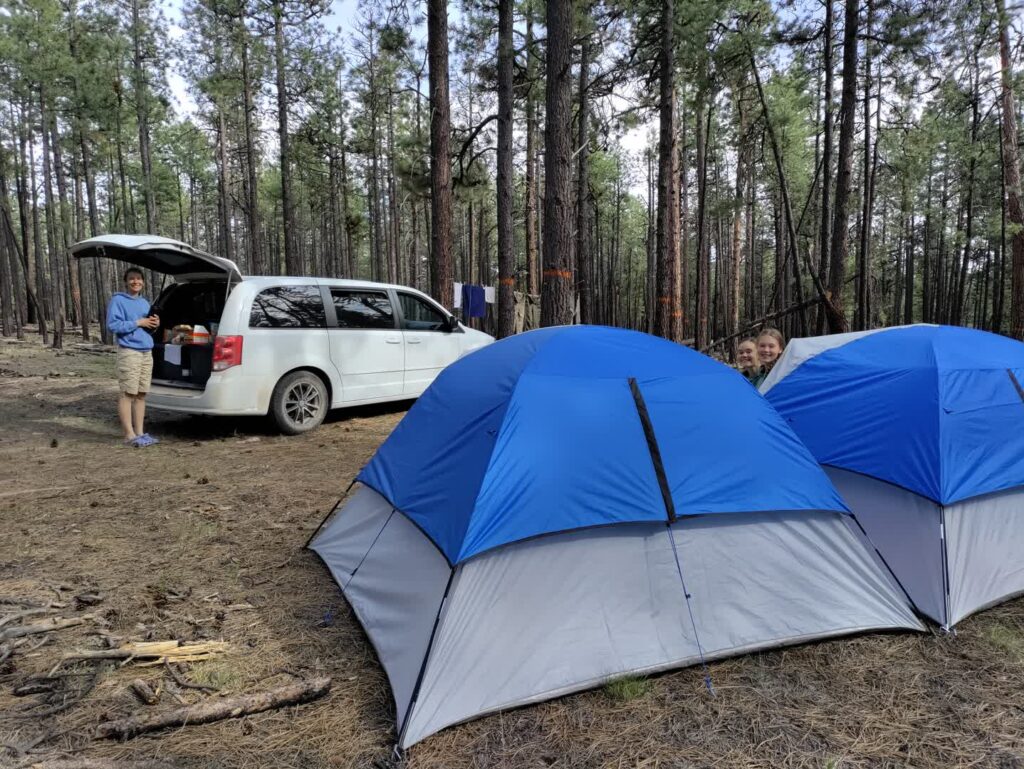
One of the places we visited on our sabbatical was Yellowstone National Park. We stopped for lunch at a popular picnic spot that has an interesting rock outcrop that people like to climb. It takes maybe 10 minutes to get to the top. While we were eating lunch we watched a family pull up in a van, get out, and begin to don hiking gear. We're talking about every possible gadget, gizmo, and gimmick that marketers could come up with to sell to inexperienced hikers. Unfortunately, after spending at least 10 minutes preparing to climb the rock pile, they shut the van doors and then realized they had locked themselves out. I offered assistance but didn't have a way to unlock their van so they were going to have to wait for help to arrive.
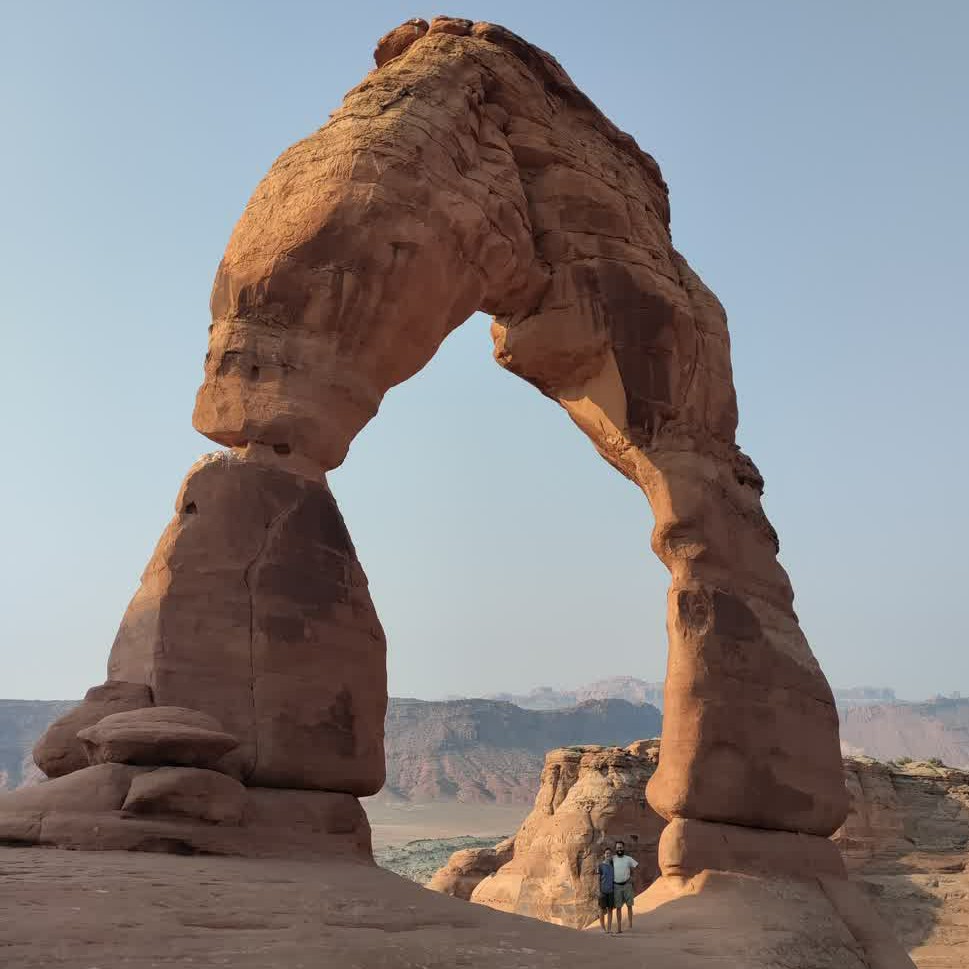
We have many funny camping stories so maybe I'll have to write a post sometime just for those, but my point in sharing this story is that there's no need to over-accessorize camping or hiking (we usually just take a water bottle hiking if it's going to be very far). The principle is KISS: keep it super simple. Marketers are happy to sell you all kinds of unnecessary junk for camping, but all you really need is food and covering.
Food
Unless you're visiting restaurants every day (with little chance of finding healthy food), you're going to need some food storage capability. Ice chests are not all created equal. Some are rated to keep your ice much longer than others. In hot weather, most don't keep it for as long as they say. We use a five-day cooler and plan on restocking food and ice every four days. Do not store food (or anything smelly - even toothpaste) in tents as it will attract critters (including bears). This short video shows our sabbatical setup.
We had to go grocery shopping every few days. Especially when you're detoxing, it's important to eat lots of chemical-free vegetables (plus Mold Toxin Illness often results in multiple chemical sensitivities, as it did for us). Unless you grow your own, the closest you can get to chemical-free is certified organic in most places. Not every town, especially in remote areas, has much in the way of organic options. If you're going to be cooking, you'll need a camp stove and a cooking pot. High winds make it challenging to cook outdoors. When we headed for the desert we knew wind would be more of a problem because of the lack of vegetation to block it, so we purchased a 10' roll of flashing from a hardware store and used that to block the wind around the stove.
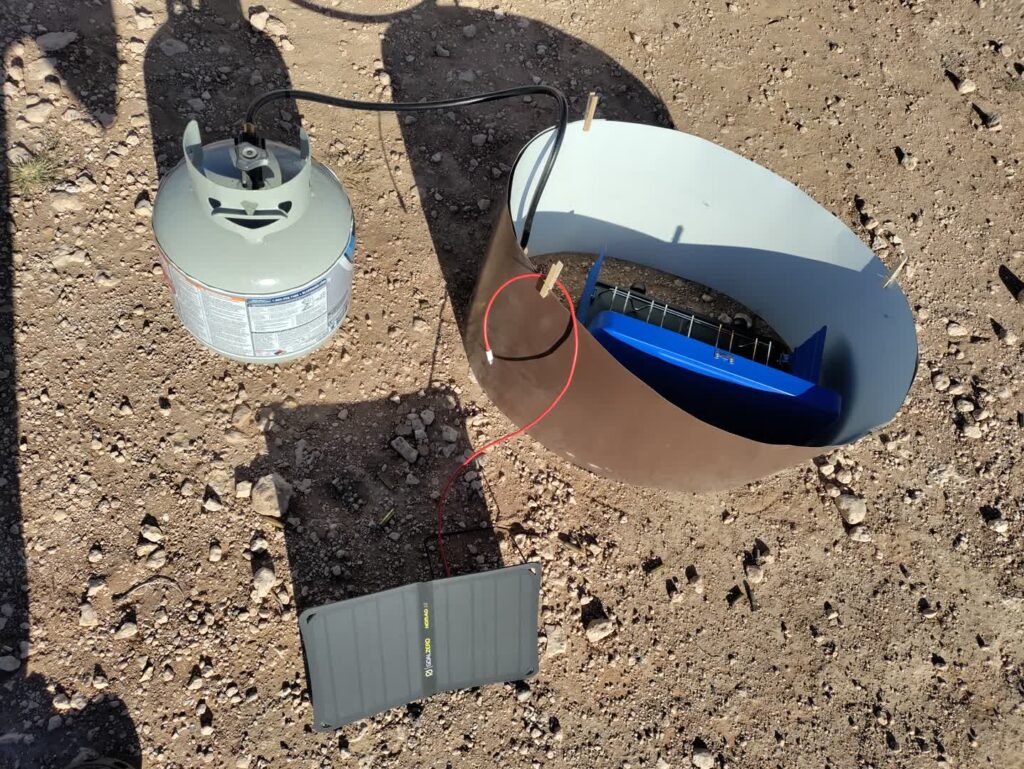
Covering
Think about the weather. In the summer this is easy. A sun hat and long sleeves prevents sun burn. Worst case scenario is typically wind and rain. Storms only last so long and obviously you'll have a vehicle to take shelter in. One thing that can make camping miserable is having your stuff get all wet. I consider a good rain coat to be an essential item if there's any chance of inclement weather and also for extended trips. It can double as a windbreaker.
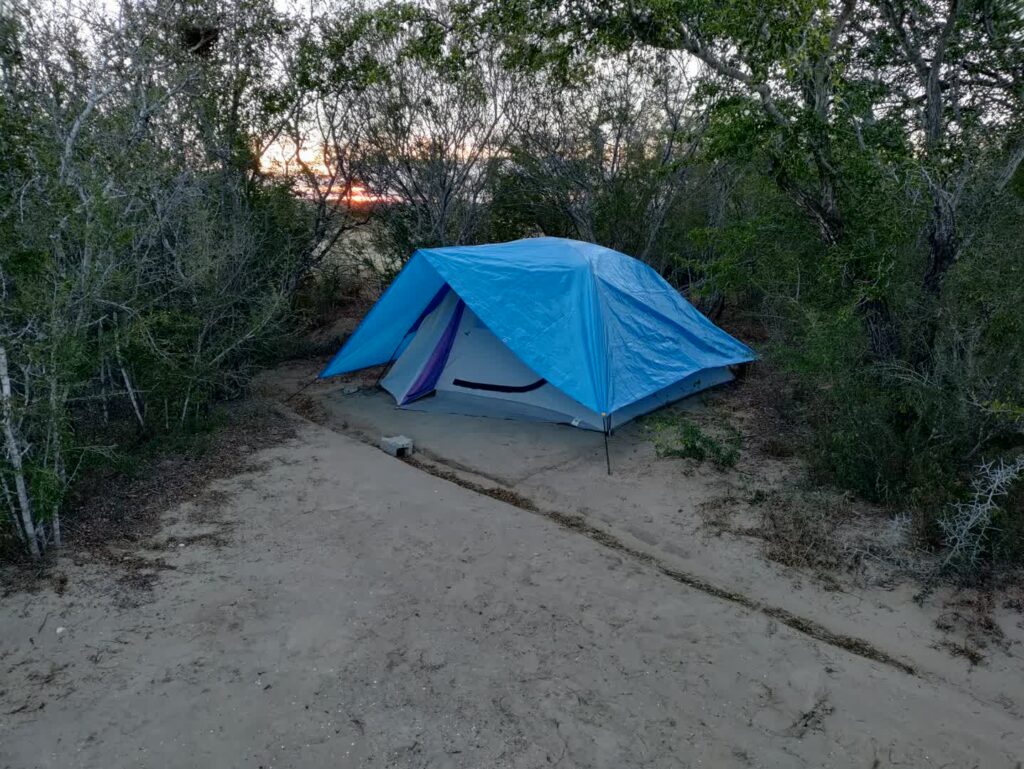
Cold weather camping is another story. It is possible to camp in the snow if you have adequate gear. I've never done it, but there is undoubtedly information online about it. It did get down in the 30°s on a few occasions and our sleeping bags kept us warm. Sleeping bags are rated for different temperatures and ours were rated for 20°. One problem with cold weather camping is condensation will occur inside the tent because your body heat will make it warmer than it is outside. So then you need the inside of the tent along with anything else that got wet to dry out every day and before packing it up. Prolonged moisture will lead to mold. When we were preparing for our sabbatical we found a helpful guide on camping gear for multiple chemical sensitivities. New items must off-gas before spending intimate time with them, otherwise you're getting hit with nasty VOCs. Ozark Trail tents sold by Walmart have some of the lowest off-gassing. We have had to change our perspective on the way we buy things. After our experience with so many of our belongings becoming contaminated, instead of buying quality items that will last a long time we've started buying cheaper items that get replaced more frequently. Ozark Trail definitely fits that description. Another option is "car camping." Depending on the vehicle and the number of passengers, this can be a really attractive option to consider. "Van life" is apparently increasingly popular among those who love to travel or can work remotely. We got rid of our vehicles and got a replacement when we walked away from everything. Something that would have been helpful is this guide on vehicles for mold-avoiders.
Etiquette
Think about those who will come after you and apply the golden rule. Would you like to arrive at a camping spot only to find trash strewn about? Pack it in! Pack it out! Leave the place better than you found it if possible. If you have a campfire, don't burn anything besides paper, cardboard, and wood. Metal doesn't burn (leaving trash behind), and plastic creates nasty, toxic smoke that you will regret. For that last reason, avoid glossy paper/cardboard as well. And don't have a fire unless you have the means to put it out before you leave or go to sleep (a shovel to smother it with dirt or several gallons of water for a small campfire). Many a forest has burnt down from careless people.
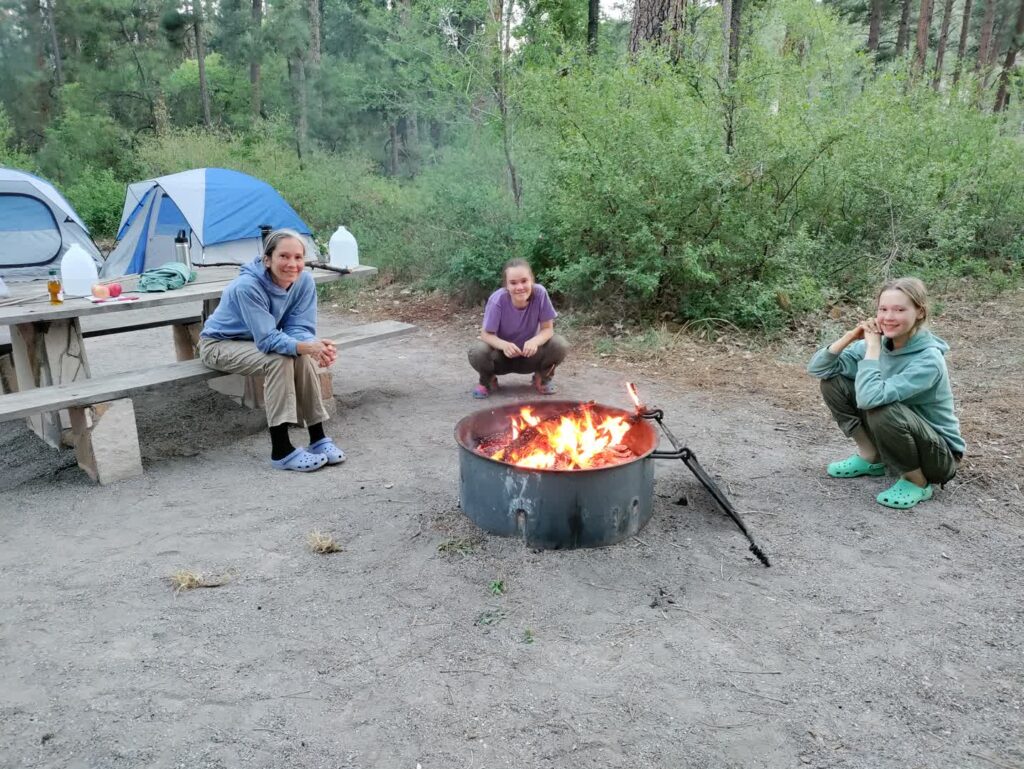
If camping in the wilderness without facilities, most people just pee behind a bush and dig a hole (with a garden trowel) to poo and bury it beneath several inches of dirt. This doesn't create an environmental problem if you're not in one location for an extended period of time. If there's not sufficient bushes, you can get a popup privacy tent that can double as a shower (for sponge baths or other setups). There are toilet seats for 5-gallon buckets available and systems for catching poo in bags to be taken out with the trash.
Locations
I would love to have gone to some remote location and just stayed there for a long while. There's multiple reasons that wasn't feasible. We got really good at setting up and taking down camp efficiently as we did it day after day while traveling to and fro. We started out going to paid campgrounds, but they are often crowded and packed with RVs, most of which have mold problems. We did not want to be surrounded by them.
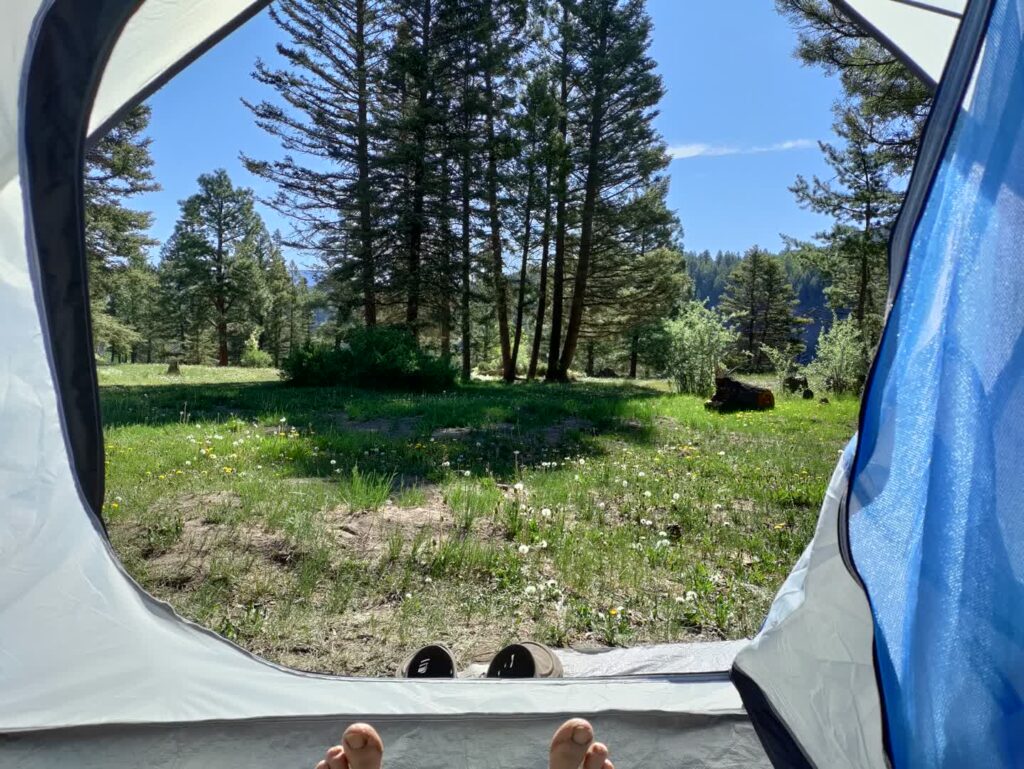
If you know someone who has some rural property, you might arrange to camp on it. In the western United States there is lots of public land run by the Forest Service and the Bureau of Land Management (BLM). Much of this land is open for camping. They have both paid campgrounds and free, dispersed camping (we prefer dispersed). Often there's a two week camping limit in a single spot, but this varies by location. You can visit a BLM or Forest Service station and talk to a ranger who can tell you where the best spots are and even provide a map. You can also look them up online. Early on our sabbatical I found freecampsites.net and that became my daily friend as I was planning our routes. Through it we discovered some amazing spots that I don't think we otherwise would have found (apart from locals revealing the best spots in the area). Examples include Utah's Valley of the Gods in the video above; McCroskey State Park in Idaho (Coeur d'Alene is relatively close and it has a Natural Grocers plus a food co-op that grows chemical-free food on site); and the county campground where we spent the winter in southern Texas with hot showers and water spigots at each site. Another resource of particular interest to mold-avoiders and chemically-sensitive is the Locations Ratings Project. These aren't campgrounds, but rather cities throughout the United States rated by the mold-avoidance community for how people have felt. (The website appears to be down at the moment so you might try the archive.)
Comments By My Wife
My wife was a city girl who married a mountain man and has adjusted over many years. Initially, she really didn't like camping but she learned to tolerate it. She prefers buzzing around the house doing more than I understand and keeping everything tidy. But after camping for a year on our sabbatical, she's a pro. When I told her I was writing a post about camping she said:
Everything takes longer than usual. Expect it. Everything is more work than usual. Expect it. On the upside, when you’re camping you don’t have a lot else to do and if you’re trying to detox, you need activity. Plus it gets you outside in nature (good VOCs), the sun (vitamin D), and clean air – which all help with healing.
Super Secret Spot: Crystal-Clear Natural Hot Springs Pouring out the Side of a Volcanic Caldera into Cascading Pools down the Mountainside
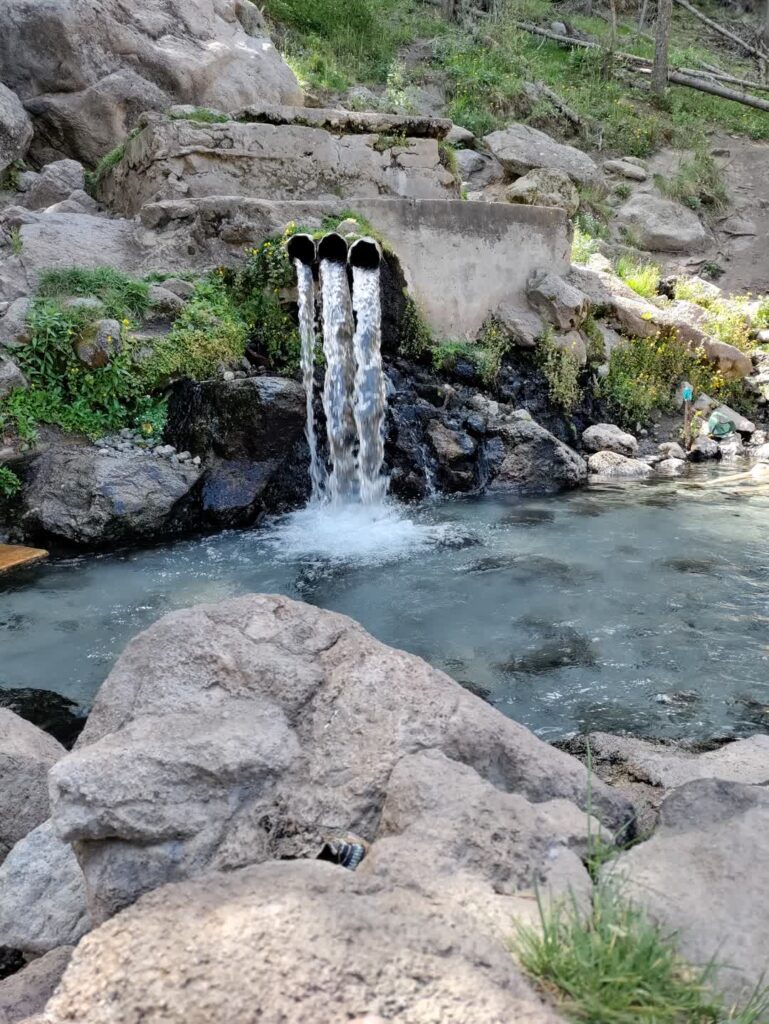
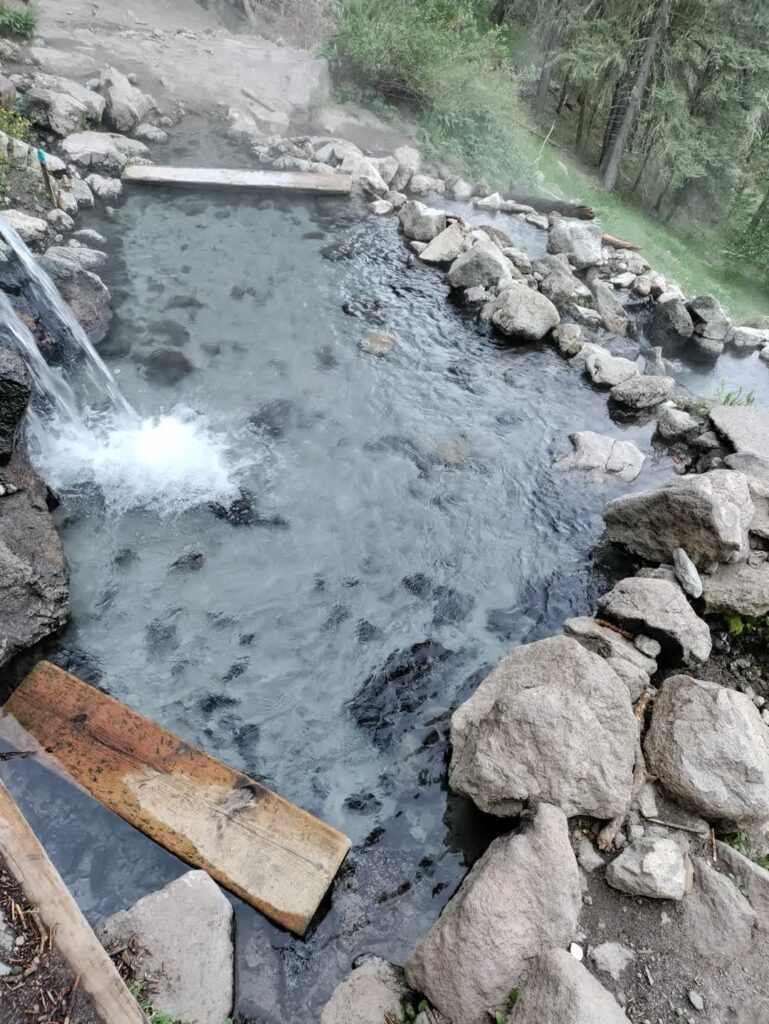
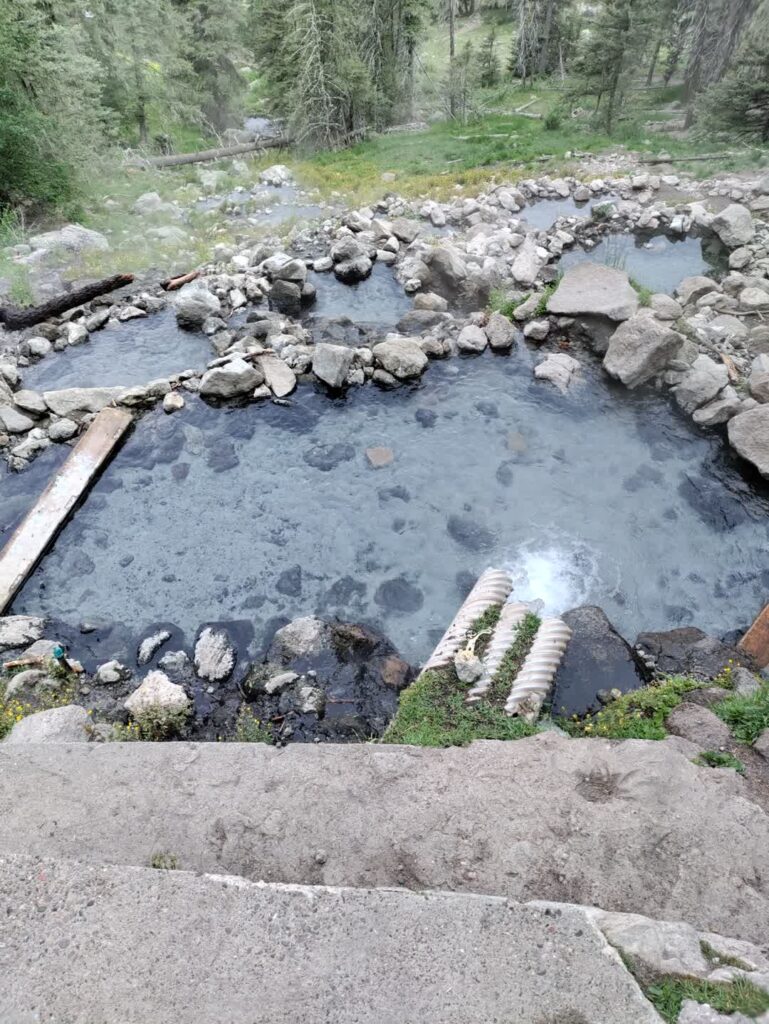
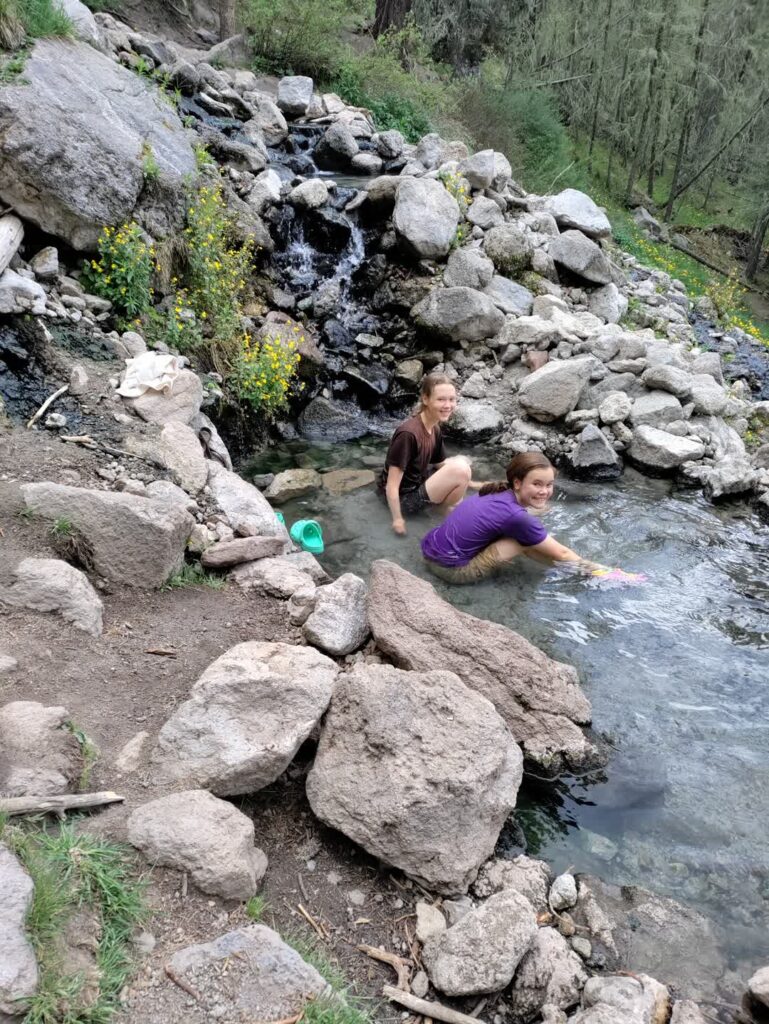

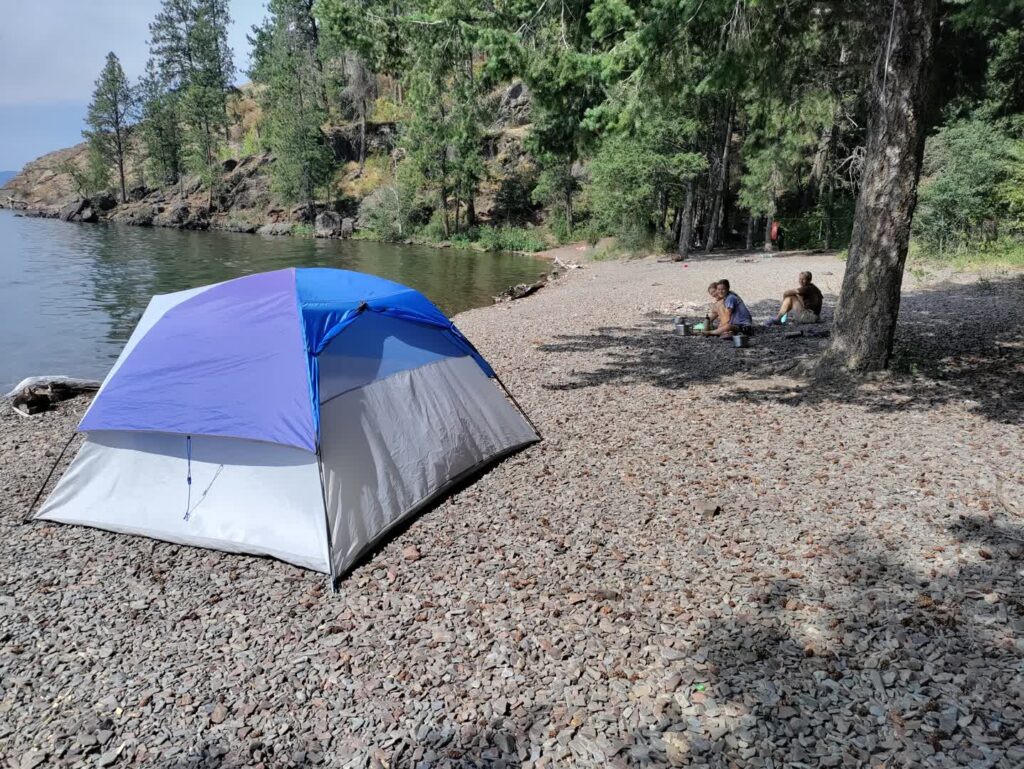
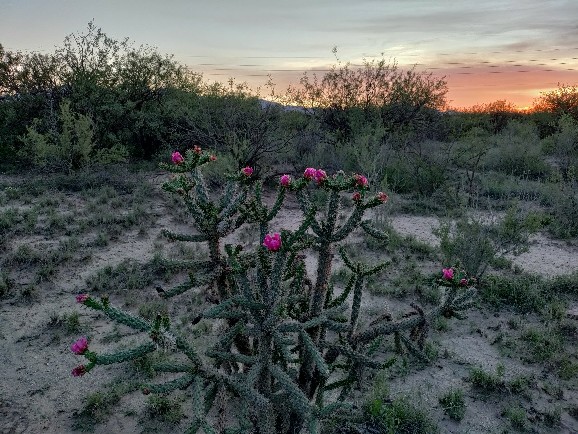
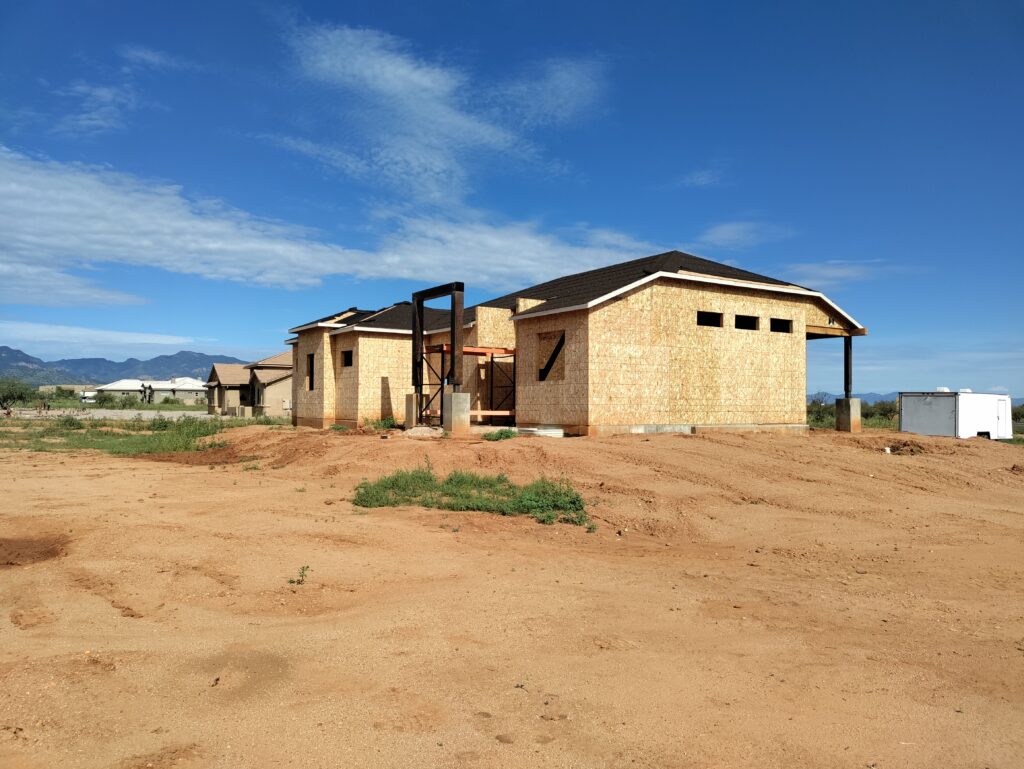
Thanks for a nice post that touches upon essentials. And no typos nor improper grammar. That is refreshing in and of itself. And, nice use of pics and links (Paradigm Change down?? May be temporary condition). I’m planning on an escape from my moldy abode for a while. I already got out of the highly problematic and tox-sick house after fixing up my garage which is an improvement. But I found out that there is mold present there as well. Mold toxicity is no joke. I went through a lot. I believe that I have gotten through the worst of it, by the infinite grace of God, of course. The MD doctors (some naturopaths as well) that I consulted were mainly useless, if not dangerous. A certain naturopath was definitely helpful at one point. Unfortunately, many in the healing arts don’t seem to understand about mold issues (neither did I for the longest time, but I sure knew something was up when I became highly chemically-sensitive). I have in mind a trip to the southwest US from Washington state later this winter (car camping unless I find a good van. Dry, Warm and no cellular microwaves is what I’m looking for. Death Valley is high on the list but not exclusively so. I sense that doing this will be supportive in further resolution of my problems. I can only do the experiment to find out. God Bless and thanks for sharing your knowledge and experience.
Thanks for the comment, Daniel. It is sad but true that “many in the healing arts don’t seem to understand about mold issues.” I’m excited for you that everything is working out to be able to get out of that tox-sick environment soon! It’s a big leap, but it is critical. We didn’t visit Death Valley, but I understand it’s a popular destination for mold avoiders. God bless you and I pray for your success!